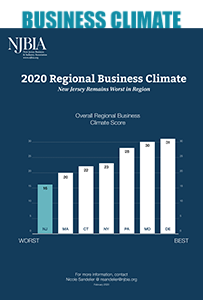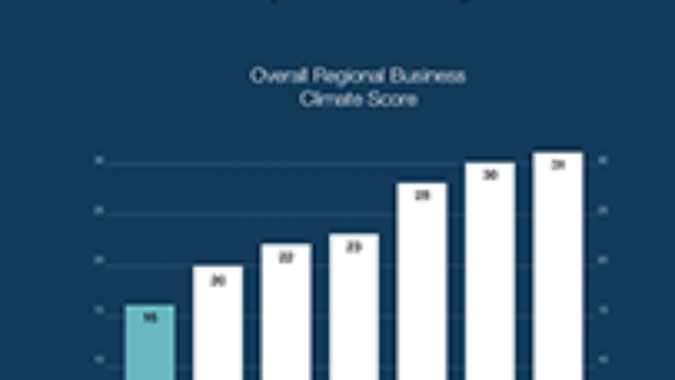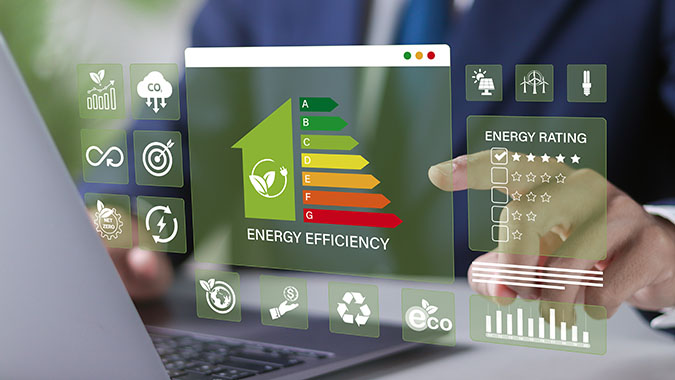On the eve of Gov. Phil Murphy's budget address that is expected to call for more unnecessary tax increases, NJBIA released its updated 2020 Business Climate Analysis showing New Jersey has the least competitive business climate, with the highest corporate tax, state sales tax, income tax and property taxes in the region.
NJBIA analyzed six individual business cost drivers in seven states and determined New Jersey ranks at the bottom overall behind Massachusetts, Connecticut, New York, Pennsylvania, Maryland and Delaware.
The graphic can be found here. 
"Once again, New Jersey is dead last on overall regional competitiveness and affordability," said NJBIA President & CEO Michele N. Siekerka, Esq. "The only way for New Jersey to turn this situation around is with comprehensive reforms that are long-term and sustainable, not more tax increases and short-term fixes that only get the state through the next one-year budget cycle or two-year election cycle.
"It's our hope that Tuesday's budget address starts addressing some of these issues."
NJBIA's annual Regional Business Climate Analysis, prepared by Director of Economic Policy Research Nicole Sandelier, observes six factors that affect business competitiveness — minimum wage, top income tax rate, top corporate tax rate, state sales tax rate, top unemployment tax rate and property taxes as a percentage of income — to see how New Jersey stacks up against six states in the region.
Each state's rates are compared and scored from 1 (least competitive) to 7 (most competitive).
New Jersey's overall business climate score (16) was the weakest for the third straight year. Once again, Delaware (31), Maryland (30), and Pennsylvania (28) were ranked first, second and third. New York's overall score (23) improved 1 point from 2019 to secure fourth place, while Connecticut (22) dropped 1 point this year to finish fifth behind New York. Massachusetts (20) ranked sixth both years.
Compared to the six other states, New Jersey had the highest top income tax rate (10.75%), top corporate tax (10.5%), state sales tax (6.625%) and property taxes paid as a percentage of income (5.05%). This is on top of New Jersey's onerous regulatory climate and challenges in supporting an innovation ecosystem seen in some other regional states.
Last week, Senate President Steve Sweeney announced a proposal to not sunset a corporate business tax hike that was to end in 2022. The current top corporate tax rate is the second highest in the nation.
"Misguided proposals that expand New Jersey's income tax, raise the state sales tax, maintain our our corporate business tax as a national outlier, and ignore the issues that drive high property tax rates would only worsen our business climate," Siekerka said.
"New Jersey needs a more competitive economy, not just for the businesses operating here and their executives, but for the middle-income employees who depend on these businesses for their livelihood."
Siekerka noted some special interest groups are already lobbying for a budget that increases and reinstates several different taxes in order to fund $3.1 billion in additional state spending in the FY 2021 year that begins on July 1 — even though state tax revenues are currently running well ahead of projections and 6% above the same seven-month period in the previous fiscal year.
"New Jersey's challenges won't be solved with more taxes and more spending," Siekerka said.
"What's needed are structural budget reforms that address New Jersey's long-term debt and the state's unsustainable spending on platinum-level public employee healthcare plans and pensions. Pension and benefit reform will allow New Jersey to spend more on important public policy priorities such as education and transportation."
According to NJBIA's analysis of audited state revenues, expenses and debt found in New Jersey Comprehensive Annual Financial Reports, state revenues increased 23% from 2007-2017, while state expenses have increased 45% and state debt increased 382% during the same period.




